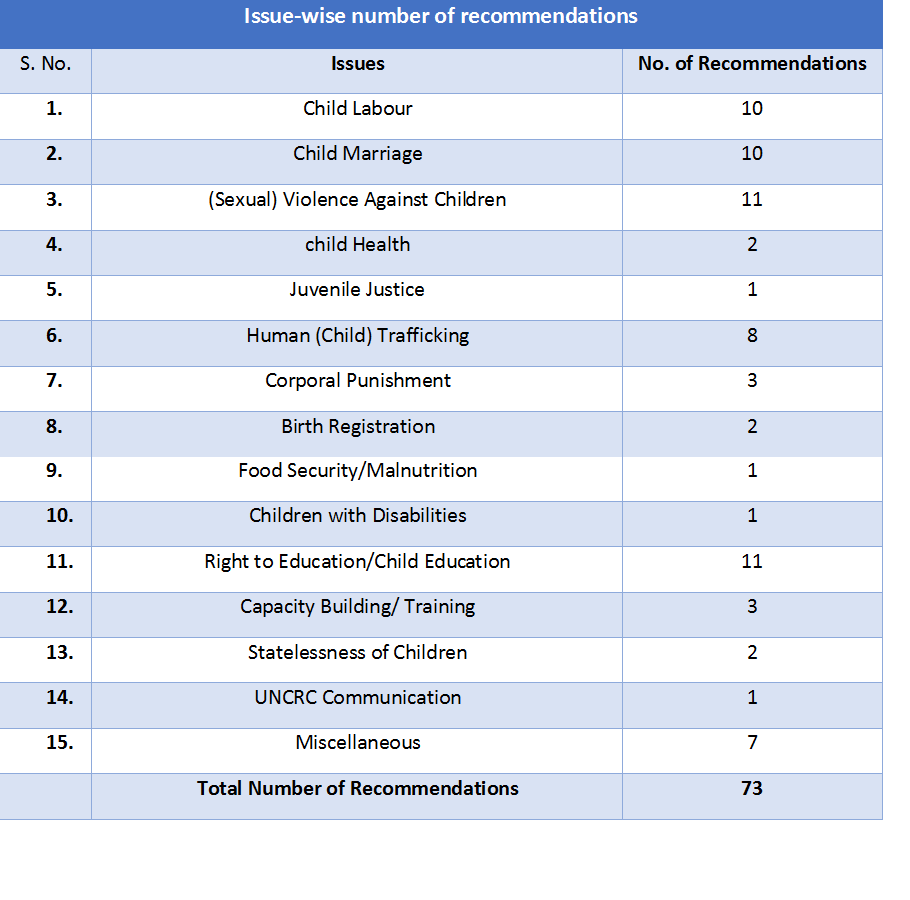 Menu
MenuIndia received 73 recommendations on child rights at its third universal periodic review at the UN Human Rights Council.
Kumar Shailabh
On 4 May, during India's Universal Periodic Review (UPR) at the UN Human Rights Council, Bulgaria recommended to the government to introduce a child-rights-based approach in all its policies. This was a welcome move that turned the focus to child rights on a global forum. Indeed, this was the first time in the three cycles of the UPR review that children received so much attention.
The 27th Plenary Session of the UN Human Rights Council observed the participation of 112 member states. Based on the government of India's Report to the Human Rights Council and Stakeholders' Report from India, the member states voiced concerns on various thematic human rights issues and suggested a total of 250 recommendations ranging from the issues of conventions against torture, death penalty, enforced disappearances, marital rape, children's rights, human rights defenders, women's rights, caste-based discrimination and the clampdown on NGOs, among others.
Child labour, child marriage and (sexual) violence against children were among the issues on which the government was criticised heavily.
While progress made by the GoI was acknowledged, member countries also raised several human rights concerns. Children's rights topped the list of recommendations—there were a total of 73 recommendations made on various issues of children's rights. The previous two cycles of UPR (first in 2008 and second in 2012) did not see such a significant number of recommendations on the issues of children. During the review, a total of 53 member states gave recommendations to India on 14 specific thematic issues of child rights. Child labour, child marriage and (sexual) violence against children were among the issues on which the government was criticised heavily.

While some of the neighbouring member states appreciated India's work on human rights and abstained from giving any recommendations, others were more vocal in expressing their concerns. Slovakia gave the maximum number of recommendations to India on a range of child rights issues followed by Chile, Liechtenstein, Mexico and Zambia. Other member states too contributed positively with their recommendations during the review.
It will be interesting to see which recommendations will be "accepted" by the government of India and what will only get "noted".
The provision in the new Child Labour Act, which allows children to work in family-based enterprises, came under the scanner and Slovakia recommended that the provision be repealed. A lot of emphasis was also given to the issue of human (child) trafficking and recommendations were made to combat the problem and rehabilitate victims. As India has ratified the UN Convention on the Rights of the Child (UNCRC), Kenya and Slovakia suggested that India should implement article 7 of UNCRC to end statelessness of children regardless of their parents' legal status and ethnicity.
While India has reserved its position on all the recommendations and has kept the matter pending till September this year, it will be interesting to see which recommendations will be "accepted" by the government of India and what will only get "noted".




The UPR III is an effective mechanism of peer review of member states on a country's human rights record, and the focus on children this time was remarkable. One can only hope for the best possible positive outcome from this process. Now it is every government's responsibility to take the global human rights discourse further by addressing and by accepting the constructive recommendations passed by other member states. The least one would expect nationally is a consultative process initiated by the government with CSOs/NGOs on these recommendations. It is high time we realise and assert that human rights are not a work in progress, as was mentioned by the head of the UPR –India delegation. Human rights in India are as old as the goals set out in our Constitution 67 years ago.
Source: http://www.huffingtonpost.in/kumar-shailabh/india-s-child-rights-record-scrutinised-in-un-review-and-it-does/?utm_hp_ref=in-blogs